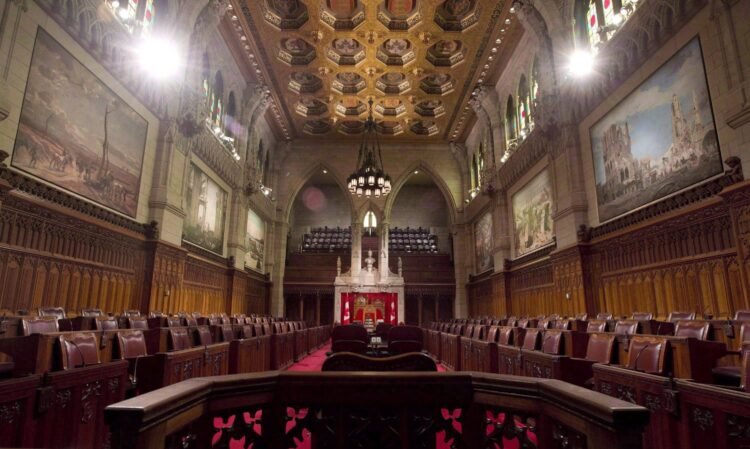compiled by Elmili TK
OTTAWA — A federal judge has rejected a legal challenge against Prime Minister Justin Trudeau’s decision to prorogue Parliament, ruling that he acted within his constitutional authority.
Two Nova Scotia residents, David MacKinnon of Amherst and Aris Lavranos of Halifax, had sought a Federal Court declaration that the suspension of Parliament was illegal, arguing that a “reasonable justification” was required for such a move.
They asked the court to overturn Trudeau’s January decision to advise Governor General Mary Simon to prorogue Parliament until March 24. However, federal lawyers countered that the prime minister’s advice to the Governor General was not subject to judicial review and that the final judgment should be left to voters.
In a ruling made public late Thursday, Federal Court Chief Justice Paul Crampton acknowledged that courts do have a role in reviewing such decisions to uphold public confidence in government institutions. However, he found that the applicants failed to prove that Trudeau had exceeded any legal limits established by the Constitution or unwritten constitutional principles.
On January 6, Trudeau, fighting back tears, announced his decision to resign as prime minister once a new Liberal leader is chosen. He also confirmed that Simon had approved his request to prorogue Parliament, effectively pausing legislative business and wiping the parliamentary slate clean. He argued that prorogation would allow for a reset after months of political gridlock, as Conservatives pressed for documents on mismanagement of a green-tech fund.
MacKinnon and Lavranos urged the court to fast-track their case, citing urgent economic concerns, including the looming threat of steep U.S. tariffs on Canadian goods. They argued that Trudeau’s decision denied Parliament its constitutional role in addressing such pressing issues.
They also contended that unwritten constitutional principles establish parliamentary supremacy over the executive branch and that the government must remain accountable to Parliament to retain its legitimacy.
While Crampton acknowledged that the circumstances surrounding Trudeau’s decision might seem troubling—particularly given the growing concentration of power in the Prime Minister’s Office—he emphasized that the burden of proof lay with the applicants.
“They failed to meet that burden,” he wrote.
The judge found no evidence to support the claim that Trudeau’s decision was a deliberate strategy to disrupt Parliament and prevent a non-confidence motion. MacKinnon and Lavranos failed to establish when, or if, such a vote would have taken place. They also conceded in court that, at the time of prorogation, the government still held the confidence of the House.
The applicants further alleged that the move was politically motivated to benefit the Liberal Party as it prepared to select a new leader. However, Crampton noted that multiple reasons were provided for the decision, many of which related to parliamentary business and the public interest.
“It is not the Court’s role to question the merits or wisdom of those reasons,” he wrote.
He concluded by stressing the Supreme Court of Canada’s stance that courts should avoid “undue interference” in the affairs of other branches of government.

 English
English



























































